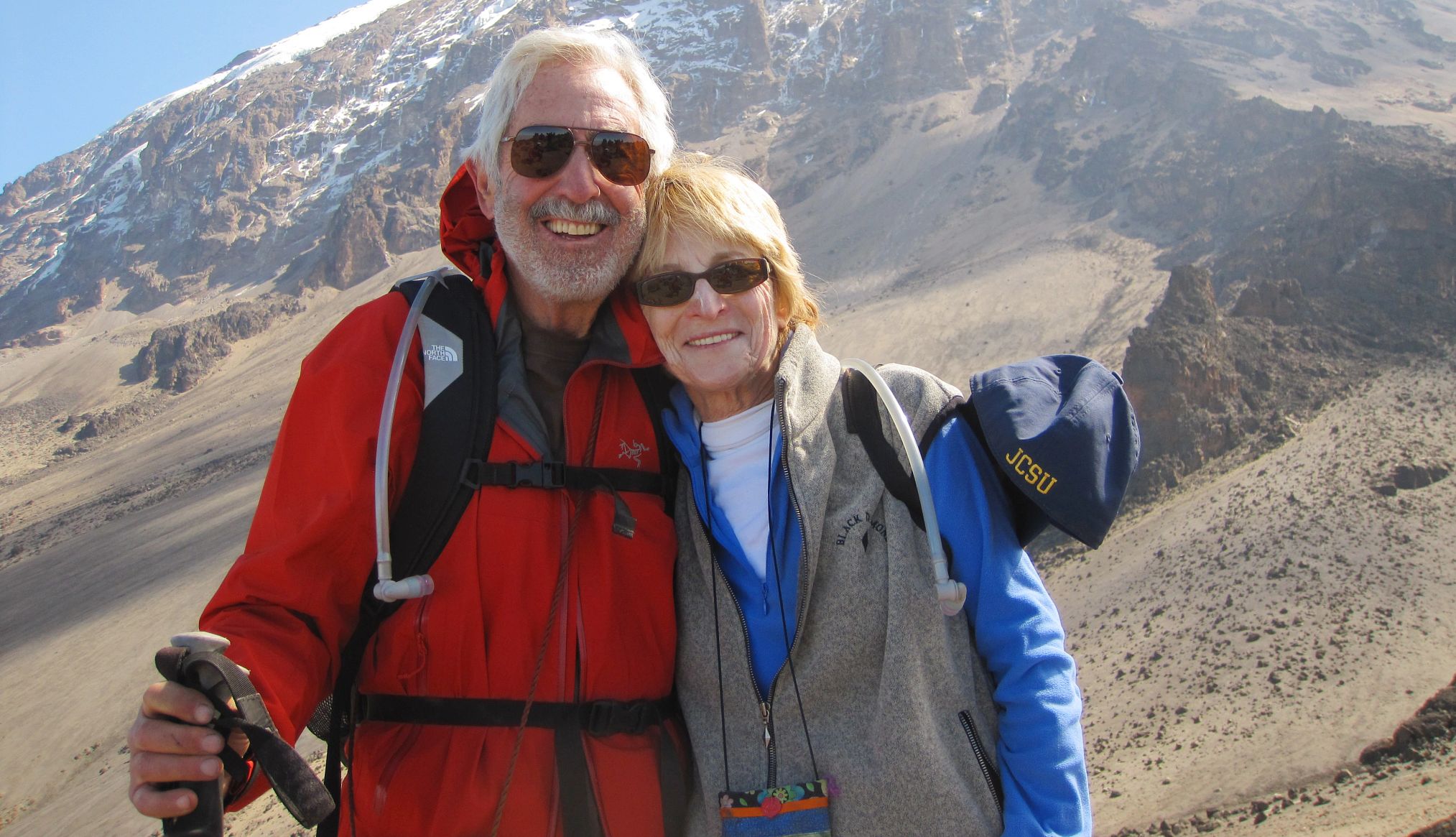AARP Hearing Center


Art Ulene, 88, divides his life into three acts.
His first was “never-ending work” and ambition, from childhood to age 62. He went to medical school and became an Army doctor, focusing on gynecological cancers. He was a university professor and then a television advisor for 23 years, logging six million miles commuting from New York to Los Angeles.
His second act, which lasted 13 years, was about “never-ending pleasure,” in which he and his wife of 64 years, Priscilla, visited 83 counties. They went to Paris nearly a dozen times, to the Carnival of Brazil and to many other exotic places until he began to feel his life lacked purpose.
That’s when a friend challenged him to get to the top of Mount Kilimanjaro, a dormant volcano in Tanzania and, at 19,341 feet in elevation, the highest peak in Africa. He thought, “I can’t do that. I grew up as a wimp.” But Priscilla heard about it and said, “I’m going too.”
So, his third act began at age 76. Why hiking? “Because it felt so far beyond my reach,” he told AARP Experience Counts. He went ahead and hiked up Kilimanjaro three times.


“I’m doing it to raise money to feed kids in Africa,” he said. “I’m doing it again to walk the talk. I tell people that age should not define who we are or what we can do.” Finally, he said, he wants to inspire others. “We live in a society where we are drowning in ageist ideas. People are constantly telling us ‘You’re too old for that.’
“Stop telling me they’re too old. If they’re too old to do that, then I’m too old to be talking to you or writing a book.” His book will be titled Ageless. And next October, he will ascend Kilimanjaro again. By then, he will be 89 years and three months old, and, if successful, will best Anne Lorimor of Paradise Valley, Arizona, the current record holder.
His third act has been about trying to prove that “health span” — a word added to Merriam-Webster in 2018 — is more important than age. “Healthspan is how much of your lifespan you’re in good health,” he explained. “My goal is to spend every damn day in good health.”
































































More From AARP
Vietnam Marine Judge Helps Veterans
‘Leave No Veteran Behind’ concept assists former military in courtBlinded Navy Veteran On How He Achieved Swimming Paralympic Gold
Brad Snyder shares steps he took to overcome devastating injuryOlympic Gymnast Shannon Miller: ‘The Gold Medal Mindset Sustained Me’
Miller, 47, won multiple golds as part of the “Magnificent Seven” team of U.S. gymnasts at Atlanta in 1996Recommended for You